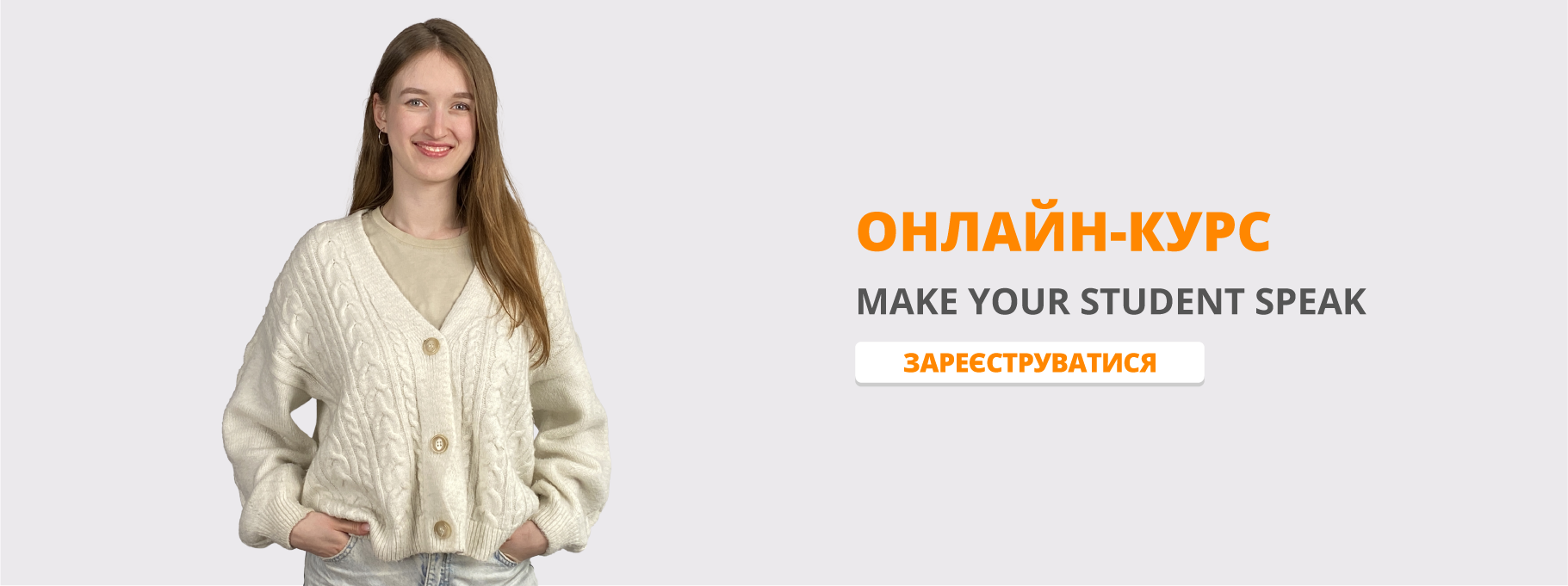Конспект уроку з англійської мови для учнів 9 класу на тему "Телебачення у нашому житті""
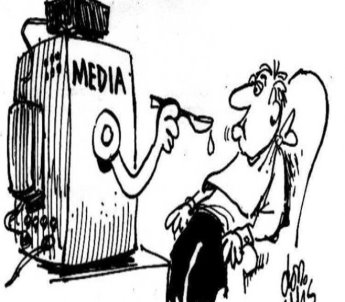
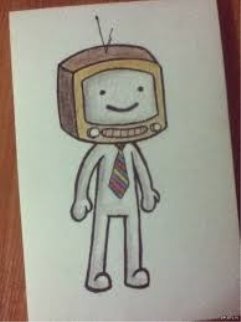
Урок у 9 класі
Тема: Значення телебачення
у нашому житті
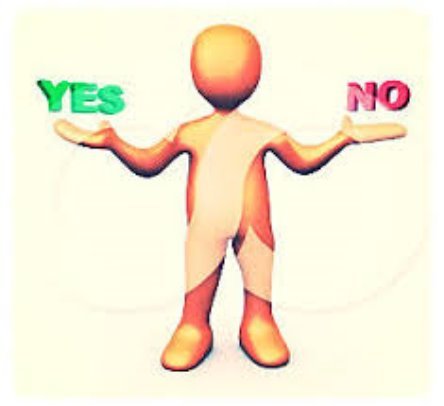
Theme: The Role of Television in Our Lives
Objectives: developing the topic; introducing and practicing the vocabulary; developing basic skills, developing speaking skills; bringing up selective attitude to television.
Equipment: writing paper, handouts, teacher’s presentation, video.
Procedure
I. Introduction
1. Greeting
2. Aims and objectives (Predicting the topic)
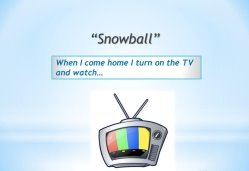 T: Look at the screen and try to predict what we are going to talk about at today’s lesson.
T: Look at the screen and try to predict what we are going to talk about at today’s lesson.
T: So, today we are going to discuss:
- TV programmes
- lexical vocabulary and grammar
- life situations and ways out of these situations
3. “Brainstorming”
T: Complete the sentence: “When I come home, I turn on the TV and watch …”
T: As you know, there are lots of programmes on TV. Let’s draw a “mind map”. What kinds of TV programmes do you know?
(TV programmes: chat show, reality show, documentary, breakfast TV, game show, news broadcast, soap opera)
T: Let’s compare our results.
T: Can you give the definitions to these words?
- Chat show – a show in which famous people answer questions about themselves
- Reality show – a programme that shows normal people in their every-day life
- Documentary – a programme that gives detailed information about a definite subject
- Breakfast TV – a type of news and entertainment programme, broadcast live in the morning (typically between 6:00 a.m. and 10:00 a.m.)
- Cartoon – a short film made by photographing a series of drawings
- Game show – a programme in which people play games or answer questions to win prizes
- News programme – reports of the latest events
- Soap opera – a story about the daily lives and relationships of the same group of people, which is broadcast regularly
II. The Main Part of the Lesson
1. Vocabulary Work
T: Look at the vocabulary list, read and translate the words:
Channel televise entertainment
broadcast viewers educational
commercial intelligent in order to
advertisement public TV addict
current events audience addiction
T: Give the synonyms to the words ( broadcast -televise, commercial – advertisement, private, audience – auditorium, public, viewers – audience, current events – news, intelligent – smart, clever)
T: Give the antonyms to the words (commercial – state-financed, public, intelligent – stupid)
T: Make up word-combinations
T: Translate the sentences into Ukrainian:
1) TV channels can be public or commercial.
2) Commercial channels broadcast mostly entertainment programmes.
3) They must attract larger number of viewers in order to sell advertising time.
4) The British like watching game shows.
5) There are commercial and state-financed channels.
6) State-financed channels televise mostly news and sports programmes, musical shows and old films.
T: Translate into English:
1) В Україні є комерційні та державні канали.
2) Комерційні канали показують розважальні передачі та цікаві фільми.
3) Державні канали показують старі фільми, спортивні програми, випуски новин та документальні фільми.
4) Я надаю перевагу перегляду комерційних каналів.
5) Хлопці нашого класу дивляться переважно спортивні програми та розважальні телепередачі.
2. Grammar Work
T: Complete the sentences with the correct relative pronouns:
1) It’s a show … there are 3contestants.
2) That was the time … I got bad marks at school.
3) I don’t know … you live.
4) This is the woman … lives next to me.
5) I have no idea … picture it is.
6) I usually go to the restaurant … is near my house.
7) You were not listening to me … I told you to switch the TV off.
8) Mary likes Jim, … is an honest guy.
3. Game “Freeze” (Pair Work)
(Each pupil is given a situation. They move the class. The teacher says “Freeze!” He/She should ask his/her question the person nearby. Then they report to class.)
Situations:
1) I hate watching TV. It’s just a waste of time, and most of the programmes are quite boring.
2) A big part of time on TV is often occupied by programmes on politics, but I don’t like them.
3) I don’t buy a newspaper every day, but I like to read one whenever something important has happened: it’s better than TV or radio.
4) Some people watch all programmes, others choose what they like.
5) If there weren’t much advertising on TV, would you become a TV addict?
6) Do you like the same TV programmes as your parents?
7) Do you think computers will replace newspapers and TV in the future?
8) How important is TV to you? What’s the difference between reading the news in the newspaper and watching it on TV?
4. Watching Video
Post-Watching Activity
T: What problem was set into this documentary?
T: Do you agree that John is a TV addict? Why?
5. Group Work
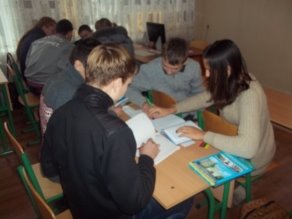 (Class is divided into 4 groups. Each group is given a task. They choose one presenter.)
(Class is divided into 4 groups. Each group is given a task. They choose one presenter.)
Read the opinion about television. Agree or disagree. Give your reasons.
Group I. I hate television. I hate it as much as peanuts. But I can’t stop eating peanuts.
Orson Welles.
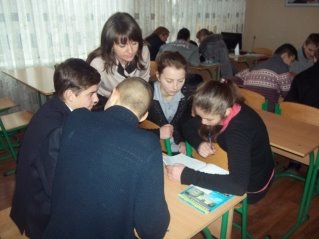 Group II. When television is good, nothing is better, but when television is bad, nothing is worse.
Group II. When television is good, nothing is better, but when television is bad, nothing is worse.
Newton Minow.
Group III. Some television programmes are so much chewing gum for the eyes.
John Masan Brown.
Group IV. All television is educational television. The question is: what is it teaching?
III. Summarizing
1.. Conclusions
T: To make some conclusions, complete the sentence: “When I come home, I …”
2. Hometask
Write a composition “Television in My Life”
-
-
THANKS A LOT!


про публікацію авторської розробки
Додати розробку
